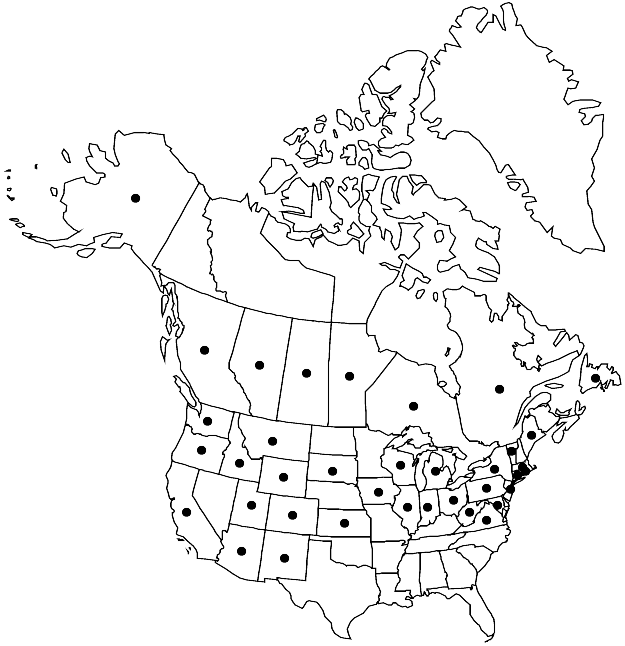Difference between revisions of "Alyssum alyssoides"
Syst. Nat. ed. 10, 2: 1130. 1759.
FNA>Volume Importer |
FNA>Volume Importer |
||
| Line 10: | Line 10: | ||
|name=Clypeola alyssoides | |name=Clypeola alyssoides | ||
|authority=Linnaeus | |authority=Linnaeus | ||
| + | |rank=species | ||
|publication_title=Sp. Pl. | |publication_title=Sp. Pl. | ||
|publication_place=2: 652. 1753 | |publication_place=2: 652. 1753 | ||
| Line 16: | Line 17: | ||
|name=Alyssum calycinum | |name=Alyssum calycinum | ||
|authority=Linnaeus | |authority=Linnaeus | ||
| + | |rank=species | ||
}} | }} | ||
|hierarchy=Brassicaceae;Brassicaceae tribe Alysseae;Alyssum;Alyssum alyssoides | |hierarchy=Brassicaceae;Brassicaceae tribe Alysseae;Alyssum;Alyssum alyssoides | ||
| Line 39: | Line 41: | ||
-->{{#Taxon: | -->{{#Taxon: | ||
name=Alyssum alyssoides | name=Alyssum alyssoides | ||
| − | |||
|authority=(Linnaeus) Linnaeus | |authority=(Linnaeus) Linnaeus | ||
|rank=species | |rank=species | ||
| Line 55: | Line 56: | ||
|publication year=1759 | |publication year=1759 | ||
|special status= | |special status= | ||
| − | |source xml=https://jpend@bitbucket.org/aafc-mbb/fna-data-curation.git/src/ | + | |source xml=https://jpend@bitbucket.org/aafc-mbb/fna-data-curation.git/src/f50eec43f223ca0e34566be0b046453a0960e173/coarse_grained_fna_xml/V7/V7_319.xml |
|tribe=Brassicaceae tribe Alysseae | |tribe=Brassicaceae tribe Alysseae | ||
|genus=Alyssum | |genus=Alyssum | ||
Revision as of 22:15, 16 December 2019
Annuals; canescent throughout, trichomes appressed, 6–10-rayed, mixed with simple and forked on pedicels and sepals. Stems simple or few to several from base, erect, ascending, or decumbent, (unbranched or branched distally), 0.5–3.5(–5) dm. Cauline leaves subsessile or (proximal) shortly petiolate; blade usually narrowly oblanceolate to linear, sometimes spatulate or obovate, 3–4(–4.5) cm × (0.5–)1–3.5(–5) mm, base attenuate or cuneate, apex obtuse or acute. Fruiting pedicels divaricate or ascending, straight, slender, 2–5(–6) mm, trichomes stellate, with fewer, simple and forked ones. Flowers: sepals (persistent) oblong, (1.5–)2–3 × 0.7–1.1 mm, pubescent as pedicels; petals (often persistent) white or pale yellow, usually linear to linear-oblanceolate, rarely obovate, 2–3(–4) × 0.3–0.7(–1) mm, apex emarginate, glabrous or sparsely stellate-pubescent abaxially; filaments (slender) not appendaged, toothed, or winged, 1–1.5 mm; anthers ovate, 0.15–0.2 mm. Fruits orbicular, (2–)3–4(–5) mm diam., apex emarginate or truncate; valves uniformly inflated at middle, strongly flattened at margins, sparsely stellate-pubescent; ovules 2 per ovary; style (slender), 0.3–0.6(–1) mm, basally stellate-pubescent or glabrous. Seeds oblong to ovoid, compressed, 1.1–2 × 0.7–1.1 mm, margins narrow, ca. 0.1 mm wide. 2n = 32.
Phenology: Flowering May–Jul.
Habitat: Roadsides, railways, waste grounds, disturbed sites, grassy areas, fields, sagebrush flats, limestone ledges or bluffs
Elevation: 0-1800 m
Distribution

Alta., B.C., Man., Nfld. and Labr. (Nfld.), Ont., Que., Sask., Alaska, Ariz., Calif., Colo., Conn., Idaho, Ill., Ind., Iowa, Kans., Maine, Md., Mass., Mich., Mont., N.J., N.Mex., N.Y., Ohio, Oreg., Pa., R.I., S.Dak., Utah, Vt., Va., Wash., W.Va., Wis., Wyo., Europe, sw Asia, n Africa.
Discussion
Selected References
None.